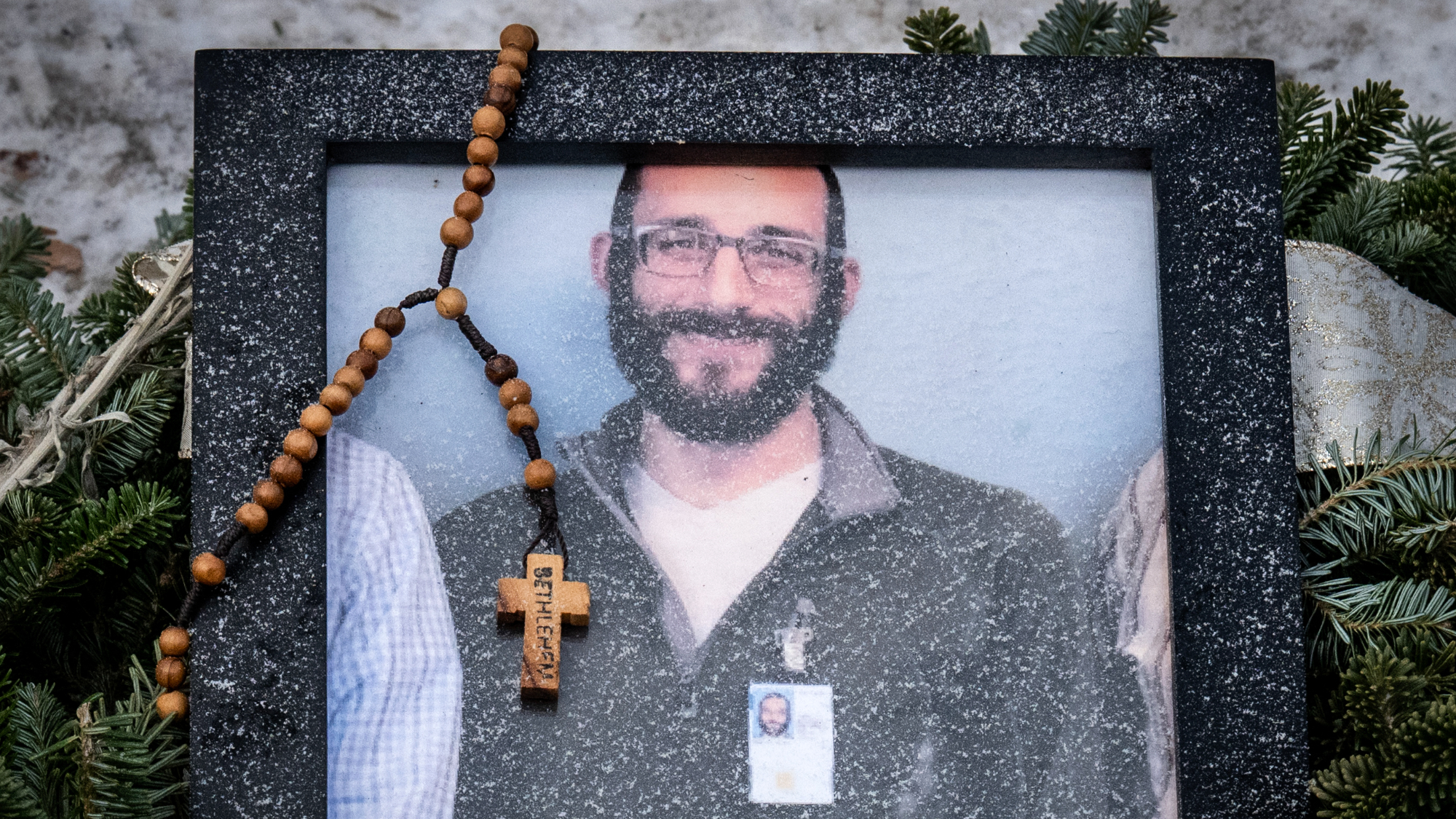The new powers to stop stalking in the UK
Updated guidance could help protect more victims, but public is losing trust in police and battered criminal justice system

A free daily email with the biggest news stories of the day – and the best features from TheWeek.com
You are now subscribed
Your newsletter sign-up was successful
New guidance is to make it easier for police to protect people from stalkers, after critics argued the standard of proof required to apply existing powers was too high.
Stalking protection orders (SPOs) make it a criminal offence for perpetrators to approach or contact their victims, carrying a sentence of up to five years. But although stalking was reported to police more than 116,000 times last year, the total number of orders obtained was "in the low hundreds", said Sky News.
About one in five women and one in 10 men experience stalking during their lives, said the Suzy Lamplugh Trust, but stalking protection orders are "not applied for as often as they should be". According to figures obtained by the victims' charity under Freedom of Information laws, 12 of the 43 police forces in England and Wales have issued fewer than 10 per year since SPOs came into force.
The Week
Escape your echo chamber. Get the facts behind the news, plus analysis from multiple perspectives.

Sign up for The Week's Free Newsletters
From our morning news briefing to a weekly Good News Newsletter, get the best of The Week delivered directly to your inbox.
From our morning news briefing to a weekly Good News Newsletter, get the best of The Week delivered directly to your inbox.
What is a stalking protection order?
Introduced in January 2020, stalking protection orders are a civil order aimed at protecting victims, with breaches deemed a criminal offence. They can stop a perpetrator from entering locations where the victim lives or visits, or contacting the victim in any way.
They differ from restraining orders and from non-molestation orders, which can only be used in the case of partner violence.
SPOs also include "positive requirements", which means that perpetrators may have to carry out actions such as attending a stalking intervention or drug rehabilitation programme, or surrendering their laptop or phones. Police must apply for an SPO on behalf of a victim, and can tailor the requirements to each case.
What is different about the new powers?
Previously, police would have to meet the criminal standard of "beyond reasonable doubt" to obtain an SPO. In many cases, said Sky News, police and courts do not "consider the legal threshold to be met – even when dozens of incidents are reported".
A free daily email with the biggest news stories of the day – and the best features from TheWeek.com
In November 2022, the Suzy Lamplugh Trust and the National Stalking Consortium launched a complaint against the police, finding "systemic issues" in the response to stalking.
Safeguarding Minister Laura Farris has now issued new guidance to all police forces to "apply a lower standard of proof". Police will have to persuade a judge "on the balance of probabilities" that an SPO is appropriate, she said: "a kind of 50-50 test".
Will they make a difference?
Reports of stalking, particularly cyberstalking, are on the rise, with new software being rolled out to help police forces monitor it. But the number of people convicted of stalking in the year to March 2023 was just 1,955, according to the latest official figures: a conviction rate of 1.7%.
This marked "another year of shockingly low conviction rates for stalking cases, and ongoing failures by the criminal justice system when keeping victims informed", Emma Lingley-Clark, interim chief executive of the Suzy Lamplugh Trust, told Sky News.
Even legislative reform and improved conviction rates may not be enough to convince victims to report stalking. More than half of the public do not trust the police to solve crimes, according to the latest YouGov survey. More than a third of respondents said they had no faith in authorities to maintain law and order.
Voters are "losing faith in the police after a spate of scandals", said The Times, which has launched a year-long inquiry into the "devastating lack of confidence" and the future of the UK criminal justice system.
Claire Waxman, a stalking victim-turned-campaigner and now victims' commissioner, believes further reform is needed to protect victims. "The problem we have for victims when they report a crime is that they are coming into a very fragmented and backlogged system," she told the paper.
"They are going to come into contact with different officers within the police, then the witness care unit, or the Crown Prosecution Service. There's no seamless process and victims are left to navigate the complexities with very little information and support."
Harriet Marsden is a senior staff writer and podcast panellist for The Week, covering world news and writing the weekly Global Digest newsletter. Before joining the site in 2023, she was a freelance journalist for seven years, working for The Guardian, The Times and The Independent among others, and regularly appearing on radio shows. In 2021, she was awarded the “journalist-at-large” fellowship by the Local Trust charity, and spent a year travelling independently to some of England’s most deprived areas to write about community activism. She has a master’s in international journalism from City University, and has also worked in Bolivia, Colombia and Spain.
-
 Political cartoons for February 17
Political cartoons for February 17Cartoons Tuesday’s political cartoons include a refreshing spritz of Pam, winter events, and more
-
 Alexei Navalny and Russia’s history of poisonings
Alexei Navalny and Russia’s history of poisoningsThe Explainer ‘Precise’ and ‘deniable’, the Kremlin’s use of poison to silence critics has become a ’geopolitical signature flourish’
-
 Are Hollywood ‘showmances’ losing their shine?
Are Hollywood ‘showmances’ losing their shine?In The Spotlight Teasing real-life romance between movie leads is an old Tinseltown publicity trick but modern audiences may have had enough
-
 Why have homicide rates reportedly plummeted in the last year?
Why have homicide rates reportedly plummeted in the last year?Today’s Big Question There could be more to the story than politics
-
 How the ‘British FBI’ will work
How the ‘British FBI’ will workThe Explainer New National Police Service to focus on fighting terrorism, fraud and organised crime, freeing up local forces to tackle everyday offences
-
 Demands for accountability mount in Alex Pretti killing
Demands for accountability mount in Alex Pretti killingSpeed Read Pretti was shot numerous times by an ICE agent in Minneapolis
-
 FBI bars Minnesota from ICE killing investigation
FBI bars Minnesota from ICE killing investigationSpeed Read The FBI had initially agreed to work with local officials
-
 ICE kills woman during Minneapolis protest
ICE kills woman during Minneapolis protestSpeed Read The 37-year-old woman appeared to be driving away when she was shot
-
 Campus security is under scrutiny again after the Brown shooting
Campus security is under scrutiny again after the Brown shootingTalking Points Questions surround a federal law called the Clery Act
-
 ‘Stakeknife’: MI5’s man inside the IRA
‘Stakeknife’: MI5’s man inside the IRAThe Explainer Freddie Scappaticci, implicated in 14 murders and 15 abductions during the Troubles, ‘probably cost more lives than he saved’, investigation claims
-
 Executions are on the rise in the US after years of decline
Executions are on the rise in the US after years of declineThe Explainer This year has brought the highest number of executions in a decade